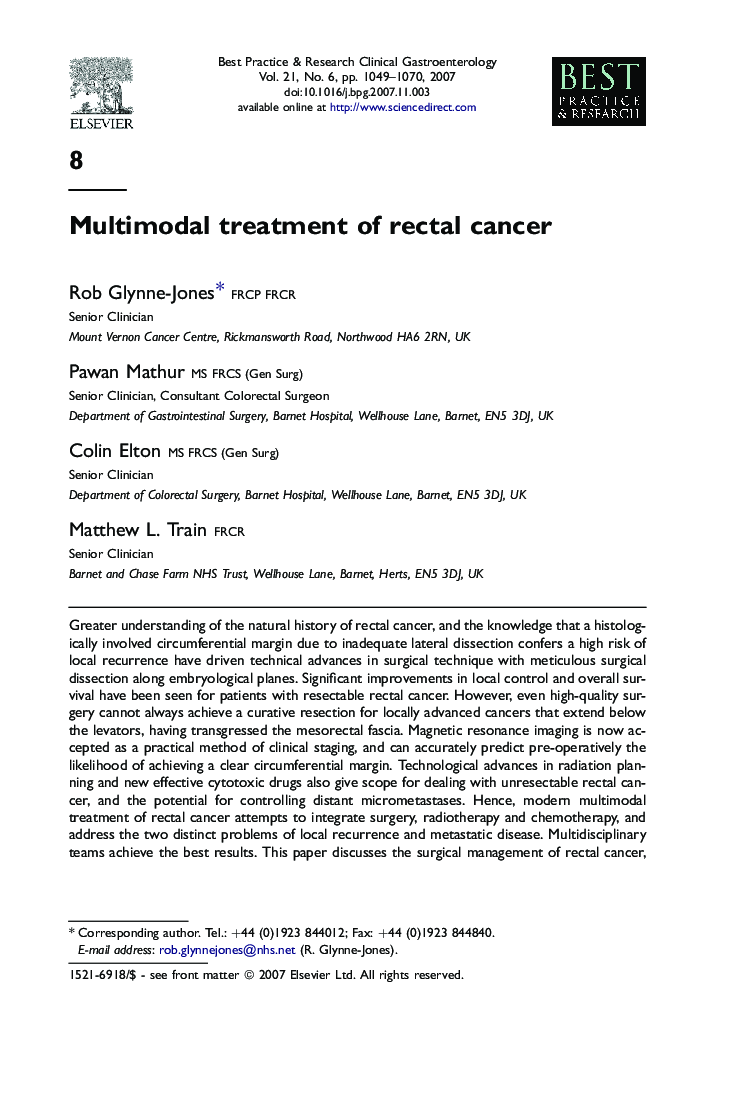| Article ID | Journal | Published Year | Pages | File Type |
|---|---|---|---|---|
| 3254619 | Best Practice & Research Clinical Gastroenterology | 2007 | 22 Pages |
Greater understanding of the natural history of rectal cancer, and the knowledge that a histologically involved circumferential margin due to inadequate lateral dissection confers a high risk of local recurrence have driven technical advances in surgical technique with meticulous surgical dissection along embryological planes. Significant improvements in local control and overall survival have been seen for patients with resectable rectal cancer. However, even high-quality surgery cannot always achieve a curative resection for locally advanced cancers that extend below the levators, having transgressed the mesorectal fascia. Magnetic resonance imaging is now accepted as a practical method of clinical staging, and can accurately predict pre-operatively the likelihood of achieving a clear circumferential margin. Technological advances in radiation planning and new effective cytotoxic drugs also give scope for dealing with unresectable rectal cancer, and the potential for controlling distant micrometastases. Hence, modern multimodal treatment of rectal cancer attempts to integrate surgery, radiotherapy and chemotherapy, and address the two distinct problems of local recurrence and metastatic disease. Multidisciplinary teams achieve the best results. This paper discusses the surgical management of rectal cancer, the pathology, the principles of imaging, and the lessons learnt from randomized trials of radiotherapy and chemoradiation.
